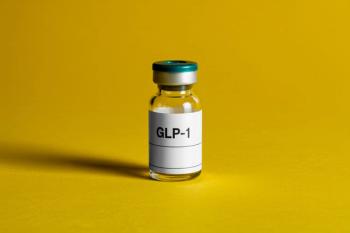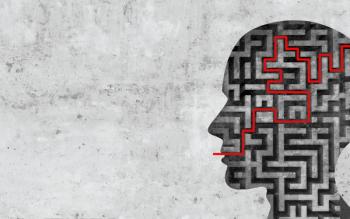
- Vol 37, Issue 4
- Volume 37
- Issue 4
Consultation-Liaison Psychiatry: The Interface of Psychiatry and Other Medical Specialties
The “tip of the spear" metaphor reflects consultation-liaison’s place as the most forward clinical psychiatry service in the wider medical world that can lead improvements in patient care.
FROM THE ACADEMY OF CONSULTATION-LIAISON PSYCHIATRY
Consultation-liaison (C-L) psychiatry is a major psychiatric subspecialty that, within general medical/surgical and academic medical and increasingly in primary care settings, serves as the “tip of the spear” for psychiatry. This metaphor reflects consultation-liaison’s place as the most forward clinical psychiatry service in the wider medical world and the opportunity to lead improvements in patient care in all medical services.
Who we are
Consultation-liaison psychiatrists specialize in the diagnosis and management of psychiatric disorders that are comorbid with general medical/surgical illness. Examples include the psychiatric comorbidity of neurological illnesses (eg, Parkinson disease, multiple sclerosis, cerebrovascular disease), endocrinological illness (eg, diabetes mellitus, hyper- or hypothyroidism), rheumatic illness (eg, systemic lupus erythematosus, giant cell arteritis), and cardiovascular illness (eg, heart disease, vascular disease). In addition to psychiatric comorbidity, there is a broad area of psychiatric adverse effects of systemically administered medications (eg, corticosteroids, other immunomodulators, CNS-active agents) and the often complicated systemic medical and
The general medical context of consultation-liaison psychiatry practice means that the psychiatric illness profile differs from that of general psychiatry practice. The most common disorders in the general medical setting include dementia, delirium, other neurocognitive disorders (eg, the sequelae of traumatic brain injury), catatonia, substance use disorders, intoxication and withdrawal states, and medical complications of psychiatric interventions (eg, neuroleptic malignant syndrome, serotonin syndrome, medication toxicity states. adverse effects) as well as depressive, anxiety, and substance use disorders. The psychiatric illnesses that constitute much of general psychiatric practice are also seen by consultation-liaison psychiatrists when they are associated with a general medical illness (eg, melancholic/psychotic depressive disorders, acute manic states, acute psychotic states) and when they result from medical illness and the trauma of treatment (eg, acute stress disorder, PTSD following major surgery or intensive care).
Consultation-liaison psychiatrists are expert at the complex task of managing psychiatric illness in the context of the general hospital and the emergency department. The responsibility of the C-L psychiatrist is first to assure that the proper medical evaluation and management are accomplished for the medical stabilization of patients before providing the necessary psychiatric treatment in collaboration with the patient’s clinical team. The C-L psychiatrist then arranges for psychiatric disposition, if and when that is clinically indicated.
Current training models for C-L psychiatry include 2 or more months of core rotation in the standard psychiatry residency program. Following residency there is an additional full academic fellowship year for psychiatrists who wish to qualify for subspecialty board eligibility and certification in consultation-liaison psychiatry.
Where we have been
Modern C-L psychiatry has developed as a distinct model of psychiatric practice. Unlike the care of patients with serious mental illness in long-term inpatient psychiatric facilities or the care for high functioning psychiatric outpatients with psychotherapy, the C-L model
Until recently, with its inpatient medical/surgical hospital heritage, C-L psychiatry was primarily hospital-based subspecialty, with the development of one-year fellowships in C-L psychiatry that were primarily inpatient-based. However, in the past 20 years, there has been an accelerating development of outpatient C-L models. This movement involves placing psychiatrists in outpatient specialty medical settings and in primary care, where specialty physicians and primary care physicians work together with psychiatrists to care for patients.
The development of psychiatry in the general hospital led to a movement to establish C-L psychiatry as a specific and differentiated subspecialty of psychiatry. In the US, this happened in 2003 with the establishment of the subspecialty board in psychosomatic medicine (a synonym of consultation-liaison psychiatry) and with the first
Where we are now
We are now in a period of the rapid and robust development of C-L psychiatry, driven by an increasing awareness of the need to treat the whole patient as well as by increasing amounts of evidence that indicates the clinical and financial importance of better management of psychiatric illnesses in patients under general medical care. Two major medical journals,
There are a rapidly increasing number of C-L psychiatry fellowships. The leading national and international organization, the Academy of Consultation-Liaison Psychiatry (ACLP;
Within the broader subspecialty of C-L psychiatry, there has been further differentiation to better serve the needs of specific types of patients. Examples include HIV psychiatry, transplant psychiatry, neuro-psychiatry, psycho-oncology, and cardiovascular psychiatry. While these areas are all within the scope of practice of C-L psychiatry, there are C-L psychiatrists whose primary identification is with these sub-subspecialty areas.
Building on the pioneering work of a cadre of C-L psychiatrists such as Wayne Katon, it is increasingly common for mental health services to be embedded within primary care in innovative ways. An example of such is collaborative care, which uses standardized clinical pathways and the extension of psychiatrists’ time by care managers. Care managers deliver care and monitor outcomes under psychiatric supervision. Collaborative care allows primary care services to provide high quality evidence-based care for large number of patients who may have mild to moderate psychiatric illness.
Consultation-liaison psychiatrists have also been early adopters of innovative communication and other technology for advancing patient care. These technologies include the provision of psychiatric care by video communication (telemedicine or telepsychiatry) and the creative use of the electronic health record to enhance psychiatric care for medical patients (eg, standardized clinical pathways, incorporation of outcome and rating measures).
Where we are going
There are many exciting opportunities for C-L psychiatry to improve patient care. It is now clear that all sizeable hospitals must have real-time access to psychiatric consultation (whether in-person or by telemedicine). New proactive and integrated models of inpatient C-L psychiatry are increasing the field’s reach and effectiveness. The incorporation of standard clinical approaches to psychiatric illnesses (eg, dementia, delirium, catatonia, traumatic brain injury) commonly encountered in C-L practice into electronic health records is ensuring better and safer care for patients with these high-acuity psychiatric illnesses. Greater availability of psychiatric consultation for medical outpatients, with standardized pathways for patients with the common psychiatric comorbid illnesses in primary care, is extending consultation-liaison care outside the hospital setting.
Consultation-liaison psychiatrists will also continue to lead in many areas. These include emerging areas of medical genomics in psychiatry, the monitoring of drug-drug interactions, and the management of behavioral and cognitive syndromes with complicated attributable systemic illness causes. Consequently, C-L psychiatry has an important place at the forefront of clinical, academic, and administrative leadership for psychiatry.
As clinical science and technology advances at an extraordinary pace, the value of C-L psychiatry within academic departments of psychiatry, and, indeed, in medical centers and medical schools, is being reflected in increased leadership and academic opportunities acting as the tip of the spear in psychiatry’s reintegration into the house of medicine.
Disclosures:
Dr Bourgeois is Chair, Department of Psychiatry, Baylor Scott & White Health, Central Texas Division, and Clinical Professor (Affiliated), College of Medicine, Texas A&M University Health Science Center, Temple, TX; Dr Sharpe is President, Academy of Consultation-Liaison Psychiatry and Professor of Psychological Medicine, University of Oxford, UK. They report no conflicts of interest concerning the subject matter of this article.
Articles in this issue
almost 6 years ago
The Name “Schizophrenia” Is Heard Worldwidealmost 6 years ago
Big Brother FDA Is Watching, Helpingalmost 6 years ago
Drug Receptor Profiles Matteralmost 6 years ago
Let’s Talk About Resiliencealmost 6 years ago
The Other #MeToo: Male Sexual Abuse Survivorsalmost 6 years ago
25 Years After the Oklahoma City Bombingalmost 6 years ago
Resilience, Not Panic, in a Time of Pandemicalmost 6 years ago
What Is the Deal With Esketamine?Newsletter
Receive trusted psychiatric news, expert analysis, and clinical insights — subscribe today to support your practice and your patients.







